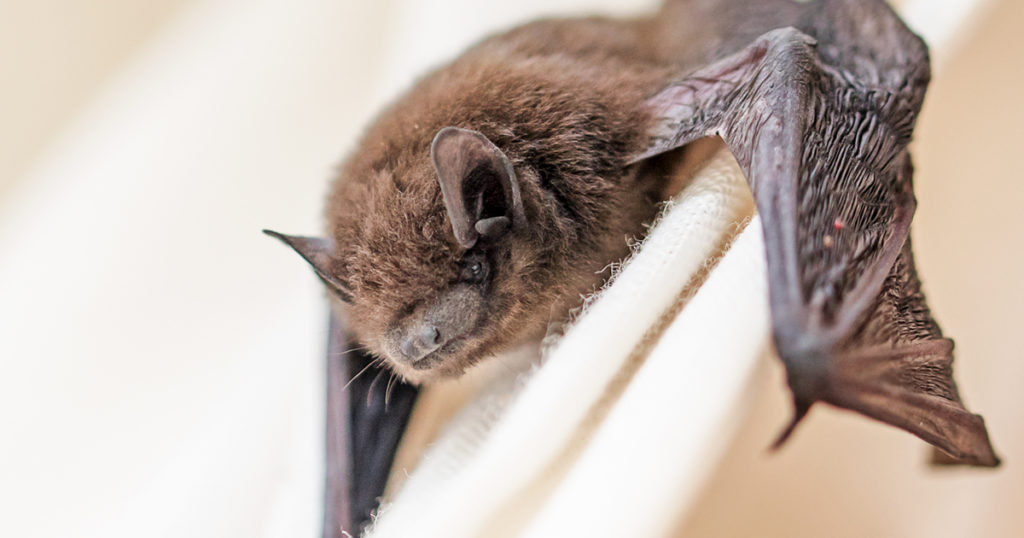
By Meg Deak
Volunteer Writer
Imagine a world without bats. More mosquitos and pests, more pesticide usage, less new growth forests and no margaritas. While this sounds like a scary story, sadly, with bat populations on the decline, this world may not be too far away.
According to Bat Conservation International bats today are facing unprecedented threats. Factors like habitat loss, wind turbines, climate change, perpetuation of harmful myths, fungal disease and use of neonicotinoids are all contributing to the increase in bat mortality.
This is a massive problem considering the importance of bats to ecosystem health. Globally, bats provide vital ecosystem services like insect consumption, plant pollination and seed dispersal.
Bats play a vital role in the control of insect populations. They are the primary predator of night flying insects. In one night, bats will eat more than 70% of their body weight in insects, consuming many pest insects that feed on crops.
Scientists estimate that the cocoa bean plant yields would fall by 22% without bats. Something to ponder while eating chocolate at Halloween this year.
Annually, bats save the agricultural industry an estimated 3.7 billion, helping farmers reduce the need for pesticides. Without bats, crop yields would decrease. Scientists
estimate that the cocoa bean plant yields would fall by 22% without bats. Something
to ponder while eating chocolate at Halloween this year.
For many plants, bats are also important pollinators. Bat species that feed on nectar, pick up a dusting of pollen when they drink nectar. When the bats move around, the pollen moves to other plants, pollinating them.
Bananas, guava, and agave are all pollinated by bats. Some plant species, like the agave plant, rely solely on bats to be pollinated. The agave plant produces tequila, so without
bats, there would be no margaritas.
Fruit feeding bats are vital for seed dispersal, particularly in clear cut rainforest. While a variety of animal species eat fruit, only bats get seeds into open clearings where the forest has been clear cut. Seeds dropped by bats are estimated to account for 95% of first new growth in rainforests.
Considering the importance of bats, helping protect these species should be a top priority. While there are more than 1,400 different bat species, bats have reproduce at an incredibly slow rate. Most species give birth to one pup annually. With mortality rates increasing, this makes bat conservation extremely important.
To help in the conservation effort, take this Halloween as an opportunity to “get batty” about bats. Take time to learn more about bats and debunk some of the harmful myths
around them.
Celebrate all that bats do and try out some spooky recipes with ingredients that bats make possible. Bat Conservation International has a bat-inspired cookbook with fun recipes to try.
If you have space in your yard, provide a safe place for bats by putting up a bat house. Bats need roosts and bat houses provide a safe space for expectant mothers. They are also a great way to start conversations and spread awareness about bats.
It’s no trick, bats are a treat to have on this planet. The time is now to work together to
conserve bat species.
